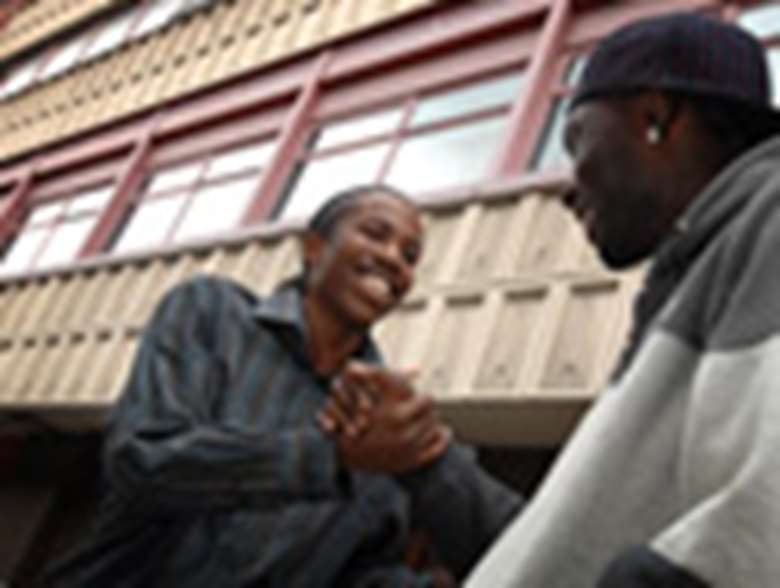Analysis: Youth justice - Does mentoring cut reoffending?
Alison Bennett
Tuesday, September 16, 2008
Charities claim mentoring schemes can prevent young prisoners reoffending after they are released, but this support isn't widely available. Alison Bennett looks at the arguments for and against a central strategy for mentoring in custody.

Junior Smart is a mentor for the SOS project in the London Borough of Southwark. The scheme works with young prisoners who have links to criminal gangs - and it is proving successful.
Smart says that in the past two years only one in 10 of the 18- to 25-year-olds he has mentored have gone on to commit further crimes. This compares with the average of nearly four out of 10 for prisoners over 18. He puts a lot of this success down to his own experience in jail, where he spent 10 years for drug-related offences.
"I've seen and experienced the same things they have," he says. "I know how the young people will feel when they're rel-eased and when they're turned down for a job as I have faced the same challenges."
But while the kind of mentoring offered by the SOS project, which is run by St Giles Trust, appears to reduce reoffending, young prisoners can't always access it.
Last week, The Prince's Trust released Making the Case: One-to-one Support for Young Offenders, a report which called for more mentoring services in youth prisons (CYP Now, 10-16 September). The charity asked young offenders what they felt about mentoring. Two-thirds said a mentor would help stop them committing further crimes after their release.
Consistent strategy
But there is no central government strategy for mentoring young prisoners and Ginny Lunn, head of policy and development at The Prince's Trust, says this has to change. The trust has organised a project to link up existing schemes, but she says more action is necessary.
"The main thing that's needed is investment and the belief that mentoring is required," she says. "There have been pockets of government money given to mentoring but we need consistency and one strategy on how we're going to provide it across the piste."
This view is shared by Clinks, a charity that helps voluntary organisations that work with offenders. But Katie Aston, policy adviser at Clinks, says any government strategy on mentoring should cover all children and young people.
"A central strategy or framework would help as workers all focus on different needs," she says. "I'd like to see any plan being broader than just criminal justice. A lot of public money goes into mentoring for drugs, mental health or housing. But, rather than drugs people doing their mentoring and mental health people doing theirs, it would be good if collaboration was more effective and thought more about the needs of young people."
And mentors are also needed when young people leave custody, according to the youth charity Fairbridge, which offers such a service. Andrew Purvis, chief executive of Fairbridge, explains: "Mentoring is imperative for engaging young offenders so they can gain the necessary soft skills - confidence, motivation, team working and good communication - to make positive steps towards education and employment." These skills, he says, will allow the young people to turn their back on crime.
The Ministry of Justice, however, has no plans to create the national strategy that The Prince's Trust and Clinks want to see. A spokeswoman for the ministry says decisions are best left to local agencies that can respond to local needs.
"Local establishments and youth off-ending teams are best placed to assess which schemes are appropriate and who should deliver them," she says. "The Youth Justice Board has produced guidance to assist in decisions."
High demand
So with no national plan on the horizon, the task of developing mentoring services falls to local agencies. But while demand from young offenders is high, the supply of mentors is limited says Smart.
"Provision is patchy nationally," he says. "At the beginning of the SOS project we had to turn clients away and there are still clients we can't take on. Other London boroughs don't have this service and we're not funded adequately. Up until last week we only had one worker on the project. The government needs to invest in peer mentoring and create stronger partnership working through a strategy for mentors, police and probation workers."
The Youth Justice Board says it is working with other organisations to try and get more mentors working with young offenders. "We want to encourage more mentors to work with young offenders in the community and in custody. Last year, 10,000 volunteers engaged and supported young people in trouble," says a spokesman.
But if mentoring is to become a bigger feature of the youth justice system, more evidence that it works is needed. "There needs to be more unpicking to establish whether mentoring has a strong beneficial effect," says Aston. "It may be that it doesn't have a huge effect on outcomes but it may do in making young offenders feel more confident and happy."
THE SOS PROJECT - WHAT IT INVOLVES
- St Giles Trust is a charity that aims to reduce crime and social exclusion. Its SOS project works with young offenders aged 16 to 25 who are in custody and are involved in gangs
- The programme involves a peer mentor working with the young people while they are in prison and aims to help steer them away from crime by providing them with the skills to create a new life outside of custody
- It has been running since 2006 and works with young people who either come from Southwark or who will return there after their sentence.






